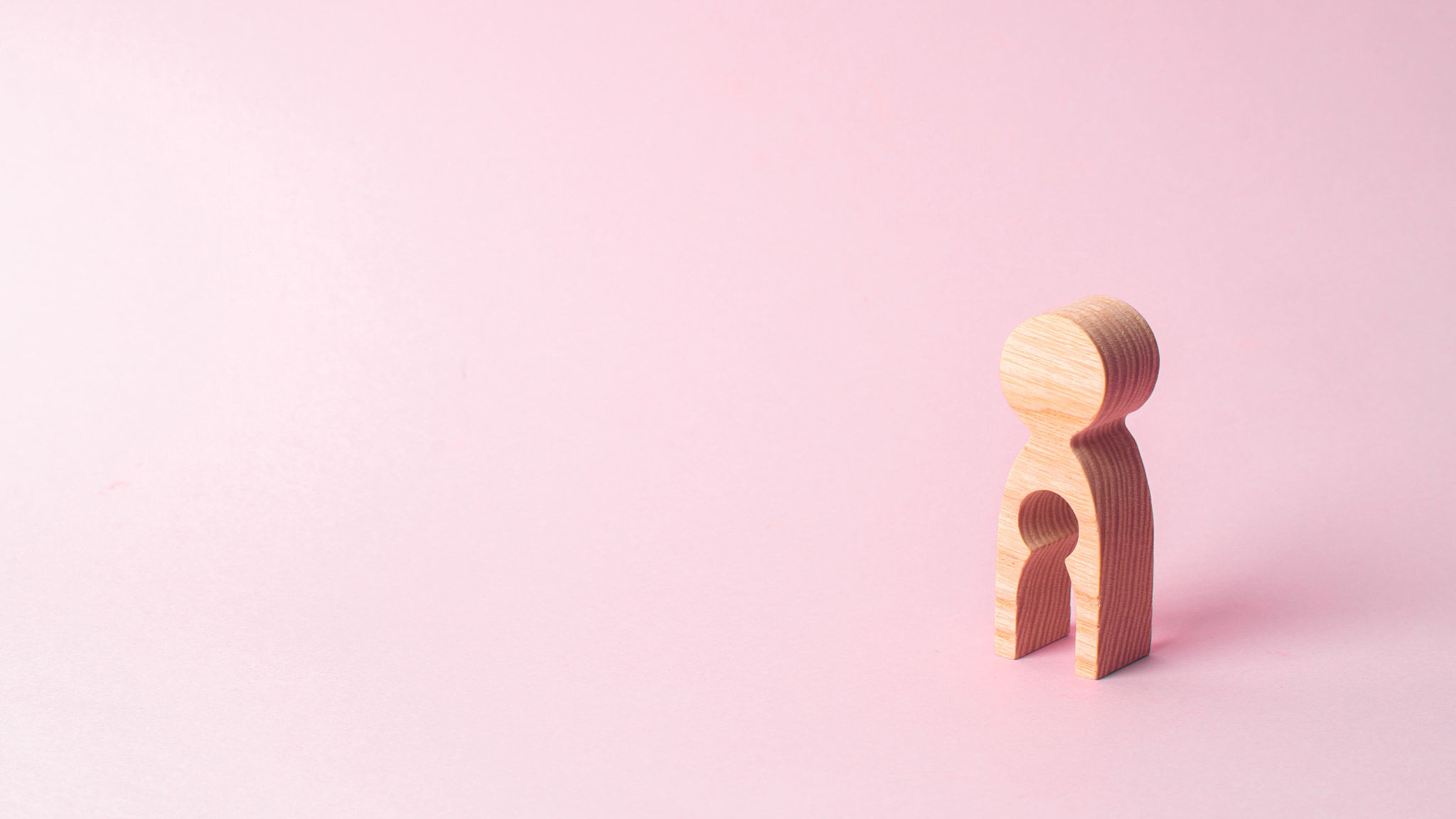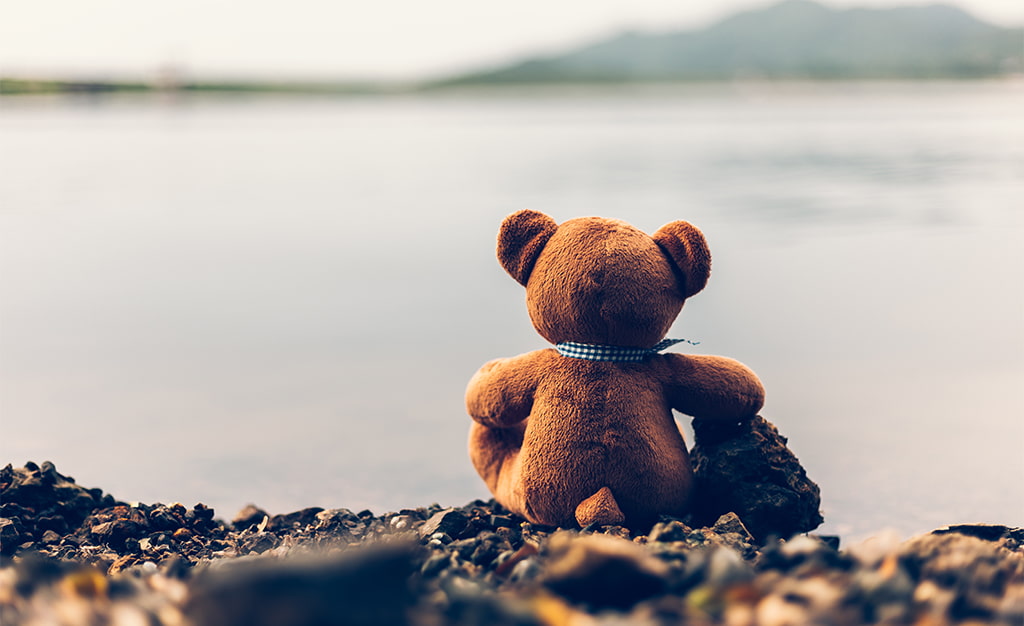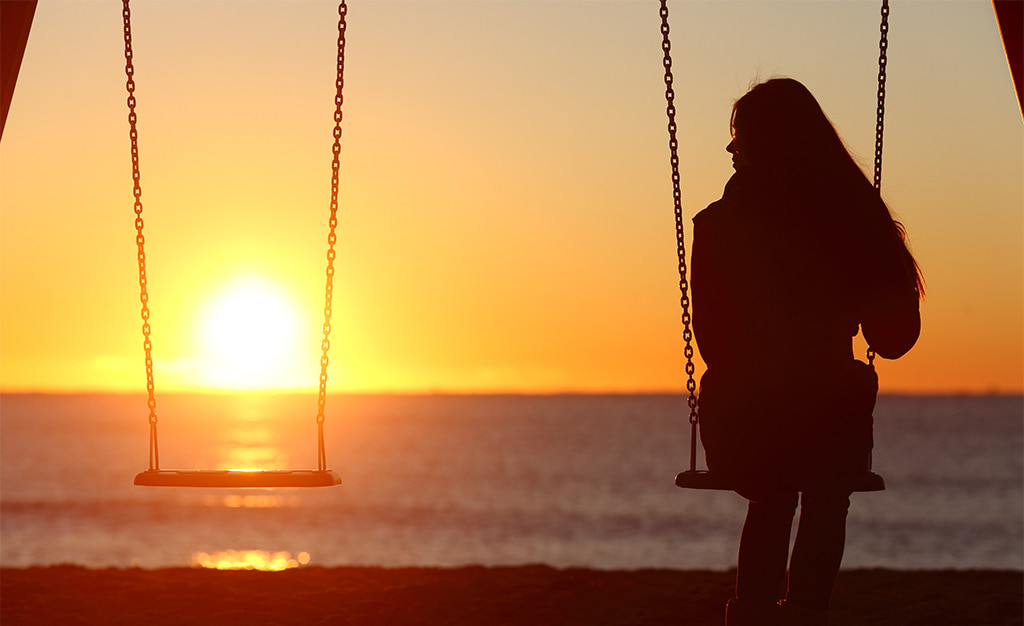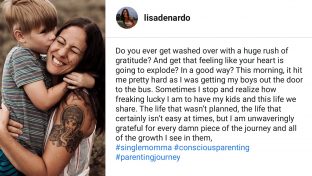Feeling Lonely After Miscarriage Is Normal — You’re Not Alone

In our real lives, the women around us share pregnancy and birth announcements but don’t often speak about the challenges of pregnancy or their losses — and the feelings of loneliness that can arise after a miscarriage.
- An estimated 15-25% of known pregnancies end in a miscarriage while the percentage of total pregnancies that end in miscarriage are as high as 50%.
- Miscarriage is much more common than society perceives, and it is important to validate the grief and loneliness that can occur while persevering on a journey of healing.
Struggling with loneliness or having a mental health crisis?
- Suicide Prevention Lifeline: 1-800-273-TALK (8255); Deaf or hard of hearing dial 711 before the number or connect via online chat
Though I mourned the loss of my baby, and actually still do, I am grateful for those months I had the privilege of carrying her. She made me a mother. Because I allowed myself room to grieve, my light returned full-force. But it took time.– Jodi
As a society, we don’t talk about miscarriage.
In the movies we watch, every pregnancy story is simple, with an easy conception and inevitable delivery.
Like most, it’s no wonder I assumed pregnancy loss was rare all the way up until adulthood. Then I entered the phase of life when my friends began planning for families.
Little by little, I learned the truth.
First, one friend called to tell me she’d lost her baby. Then a year later, it would happen to another friend.
It became an unexpected routine in my twenties.
A friend would miscarry and I’d hold her hand as she cried and told me she felt so alone, that it seemed like everyone else was having babies so easily, that there must be something wrong with her.
And what killed me was always knowing, every single time, that at least one other woman in her life (usually more) had been through the very same thing.
But I couldn’t tell her that, because it wasn’t my story to share.
Over time, I became preoccupied with the subject of miscarriage and the silence surrounding it.
I began to research it, and I eventually even had the privilege of doing one-on-one interviews with women through a podcast I hosted in which they spoke about their experiences — the medical aspects of miscarriage, the mental and emotional toll, and how the experience influenced their family planning.
Those interviews have revealed more to me than any other article or study, not just because of the stories they shared, but because of their eagerness to share in the first place.
The line I heard time and time again was, “I felt so alone. If telling my story helps another woman realize she’s not the only one, it’s worth it.”
So that’s what I set out to do.
In this article, I’m going to share the emotions, fears, challenges, and myths that define many women’s miscarriage experience.
If you are currently grieving a lost pregnancy, I hope you find some reassurance in the information I share.
But more than that, I hope you find validation and a sense of sisterhood in knowing where this information comes from: It comes from women who have never met you but want you to know that they’re in this with you.
That they’re in your corner. That they survived and found joy on the other side of their grief.
And that you will, too.
Every Emotion After Miscarriage Is Valid — Including Loneliness

Like any other form of grief, the emotional experience of pregnancy loss can be wildly unpredictable.
You may feel feelings you didn’t expect. You may feel numb when you think you should be crying, or you might be surprised by the depth of your grief and loneliness.
No matter what’s going on in that heart of yours, know this:
There is no wrong way to feel, and it is not your responsibility to heal on anyone else’s timeline.
Here are a few other things to keep in mind as you navigate the complex experience of post-miscarriage emotions.
Miscarriage Grief Takes Many Forms
What you feel depends on who you are, how you process pain, and the circumstances of your life. Just remember that even if you’re surprised by the way you feel, that doesn’t mean the feeling is wrong.
- Emotions In the Immediate Aftermath
You may feel anxious, depressed, or numb in the weeks and months following your loss.
Unsurprisingly, the weight of these emotions can also lead to distraction from day-to-day life, difficulty focusing, a constant fear of loss in other areas of life, and a sense of instability as you struggle to return to normal life with a broken heart.
If you haven’t yet delivered a baby, you also may experience the grief of “invisible motherhood.”
This is the emotion that a lot of women point to when they talk about feelings of isolation.
They’ve spent weeks, possibly even months, bonding with their child. They know themselves to be mothers, but their loved ones wouldn’t define them that way.
Guilt is also fairly typical.
Some women feel responsible for losing the fetus, although the truth is that miscarriage is largely out of the mother’s hands. The most common cause is a chromosome abnormality that no woman could do anything to prevent.
In fact, as Dr. Jaime Seeman who sits on the Medical Review Board of Women’s Health Interactive, tells me:
“I always remind women that even though this was not the anticipated outcome, their body did exactly what it was supposed to do. Their body did not fail them. Even just achieving pregnancy is an amazing feat.”
Another cause of miscarriage-related guilt? Other children.
Mothers who miscarry after already having children may feel bad for “failing” their new baby or they may feel bad for being distracted while parenting their other child or children.
They may even feel bad for feeling bad, as well-meaning friends and family encourage them to be grateful for the kids they do have.
Amberly explains:
“We already had two children so I had to continue on with life but felt so guilty. What did I do to lose a baby when I did so well with my other two? The guilt is so crippling and people all feel their unsolicited opinions will help, but they don’t.”
- Long-Term Emotions
If there was ever an argument for the realness of miscarriage grief, it’s this:
Research shows that women who have miscarried are at a higher risk for depression and anxiety well into the future.
And a study of the psychological effects of early pregnancy loss shows 38% of women demonstrated probable PTSD three months following a miscarriage or ectopic pregnancy.
Science has spoken.
Losing a pregnancy is traumatic. You feel the effects on a deep level, and no one can reasonably expect you to wake up tomorrow feeling like your old self again.
This is going to take time.
A Loss Is A Loss
Have you heard this one yet:
“Be grateful you miscarried early before you got too attached.”
Yeah, that’s dismissive nonsense, and you don’t have to be grateful for the way your miscarriage played out.
Research has not yet found a reliable correlation between the length of pregnancy and the depth of the loss.
If you feel bombarded by the opinions of well-meaning friends who want you to be grateful you miscarried early, let it be known that even science has your back in this argument. There is no stage at which losing a child you loved is easy.
Your Feelings And Your Partner’s Feelings
Your partner may not seem to share your grief…not the depth of it, anyway. And that can really enhance the feeling that you’re in this alone.
But as we’ve discussed, you’re not always as alone in miscarriage as you think you are.
If your partner is a guy, he may only seem less affected because he’s been conditioned to cope with grief differently.
Kelly Farley describes how he (didn’t) cope with losing his daughter Katie to miscarriage:
“I responded pretty much like how I was taught as a child . . . toughen up, big boys don’t cry, rub some dirt on it.”
Your partner may also react differently because they do feel differently.
It’s not that they’re not grieving; it’s just that they’re not experiencing the same physical trauma as you. And because they couldn’t feel the baby in their own body, they didn’t experience that child as an every-second-of-every-day reality in their life.
You and your partner may also be wrestling with very different forms of sadness or fear. Jodi explains:
“My husband and I did a session or two of grief counseling. We were both so heartbroken over our loss.
The therapist was wise and told us that for me, the mom, the worst thing that could happen was that I would lose the baby, and for my husband, it was that he would lose me.
We were coming from different places and should show compassion for one another.”
All this to say, if you feel like the more emotional person in your relationship right now, it doesn’t mean you’re over-reacting. And your partner may be more affected than they let on.
Miscarriage grief takes many forms and all feelings are valid whether yours or your partner’s.
Self-Care After Miscarriage
Hold a ceremony, plant a memorial garden, get tattoos, make a donation in the name of the baby… – Laurie Arnold
There is no checklist for getting through pregnancy loss.
But every step you take towards accepting and validating your own grief is a step that brings you closer to healing.
Many of the women and professionals I spoke with recommended allowing yourself room to make these choices:
- Acknowledge Your Loss
Sometimes women are slow to validate their own feelings. They think it shouldn’t hurt as much as it does, or they think like they should be grateful because somebody else has it worse.
(Side note: there is always someone who has it worse. And I guarantee you: that person does not need you to deny your own grief for their sake.)
Let yourself accept and feel that you have lost something real . . . someone you loved.
In fact, Kelly Farley encourages bereaved parents to say their child’s name and let others know it’s safe – even helpful – for them to do the same.
Mental health professionals also encourage grieving couples to share a ritual to honor your baby. Marriage and family therapist Laurie Arnold says:
“Hold a ceremony, plant a memorial garden, get tattoos, make a donation in the name of the baby . . . having a symbol or ritual you share in honor of your shared loss can be another way to move towards each other in times of grief rather than away from each other.”
- Seek Professional Help
Remember those studies about the link between pregnancy loss and depression, anxiety, and PTSD? If you feel more grief than you feel capable of managing, there’s a good reason for that.
You’re going through something difficult, possibly the greatest loss of your life.
You don’t have to navigate this alone. Reach out to a mental health professional. If you’re not sure where to start, ask your doctor for suggestions.
- Give Yourself Space . . .
. . . but don’t isolate.
You don’t have to jump back into life as if nothing happened. You don’t owe it to anyone to be the smiling face at their dinner party or to divulge the details of your miscarriage to an aggressively nosy neighbor who “just wants to help.”
By all means, set boundaries and claim the space you need to heal.
Just don’t shut all the doors.
Keep an eye on yourself. Recognize when you’re pulling away from everyone, including your partner, close family members, and close friends.
It’s so easy to isolate when you’re going through something it seems like no one understands. But sharing your grief with loved ones is an important part of the healing process, especially when loneliness sets in.
There is no “correct” way to respond to pregnancy loss.
Feel however you feel.
Your only responsibility is to be kind to yourself, be patient with your partner, and seek professional help as needed.
It’s Normal To Struggle Socially In The Aftermath Of Miscarriage

Now that we’ve discussed why you shouldn’t isolate yourself, let’s acknowledge why isolation happens so easily.
When women endure pregnancy loss, they also endure bad and even hurtful advice from loved ones.
They discover that once-enjoyable social situations are now loaded with triggers.
It can sometimes seem like it’s much easier to curl up inside yourself than to force yourself to engage.
If you feel like you’ve become the hermit or Debbie Downer of your social circle, I want you to know two things.
First, that’s fine – you get to be that person right now.
Second, it’s not just you. There’s a whole sisterhood out there who also has trouble with the following:
Communicating Needs To Family And Friends
Loved ones often don’t know how to respond to a loss like this, which can add to your own feelings of loneliness following a miscarriage.
If they don’t understand your grief, they might be dismissive. If they do understand, they might try to protect you by avoiding the subject altogether, which makes it feel like your pain is either invalid or invisible.
To add insult to injury, if no one is showing you the support you need, you may not have any idea what will help.
If that’s the case for you, here are some ideas that might help you figure out what to ask for.
Amanda – now a doula – got great support from her family and friends. She told me:
“They recognized the intensity of my grief and responded by bringing meals, coming to clean my home or watch my other children and by simply offering to listen and validate my feelings.”
When you’re already grieving, it’s not your job to also educate others on how to comfort someone after pregnancy loss.
But consider recruiting a spokesperson if you can . . . a partner, parent, or friend who can speak up when acquaintances offer the somewhat lazy request, “let me know if there’s anything I can do.”
Well-Meant (But Bad) Advice
As we discussed before, bad advice can be so accidentally hurtful it’s one reason some women keep their miscarriage story private.
Even worse, sometimes you can’t get out in front of it, even if you try.
Amberly told me:
“Close friends and family are pretty religious (I am not) and continued to use this low moment to try and get me to see a ‘god.’ Honestly made it worse. I even asked them not to in our calls announcing it, but they just wanted to ‘help.’”
Jalaena shared:
“What wasn’t helpful was when people, having multiple kids, would mention their own miscarriage with an . . . indifferent tone. They would say, ‘We had a miscarriage, too, but it’s not that bad. You’ll feel better soon.’”
I’d love to tell you that in my interviews and research, I uncovered the key for keeping hurtful and dismissive advice out of your life. But I did not.
What I can offer you is this:
You do not have to look on the bright side. You do not have to be grateful that you miscarried early. No one who is not your doctor knows why this happened. No part of this was your fault. And you don’t have a moral obligation to adopt.
Being Around Mothers And Children
Many women I spoke to described their social life taking a hit when they realized it was just too hard to be around friends who were pregnant or raising children.
Every woman’s feelings were a little different.
Some described deep pain. Others talked about anger-inducing envy, as well as the guilt of not being able to be happy for their friend. Others had to muscle through stifled resentment because the mother in question was a sister who needed her support.
If you have done any of these things, know that you are in good company:
- Ducking out of social events where children or pregnant women will be present
- Politely declining baby shower invitations
- Taking a break from social media
You are not weak, rude, or unsupportive if you do not currently have it in you to be around pregnant women and inevitable birth announcements.
Any decent friend will understand.
Your bigger priority should be to stay engaged socially by finding non-triggering opportunities to connect with friends and family.
Sometimes even those you love most are less-than-ideal company when you’re recovering from a miscarriage.
Take space when you need it, and prioritize your healing over your sense of obligation.
Every Relationship Is Challenged By Pregnancy Loss

Grief heightens vulnerability. It makes us more anxious or apathetic or puts us on edge.
Grief changes people. Grief changes everything. Including your relationship.
If your partnership feels shaky right now, it’s not necessarily because your relationship is weak. Both you and your partner are navigating something completely new and soul-shaking.
It’s going to take time, communication, and possibly therapy to find your footing again.
Communicating Your Needs To Your Non-Carrying Partner
Communication is crucial to surviving this loss as a team.
We talked about how the carrying and non-carrying partner often respond differently to a loss like this.
It’s not uncommon for those differences to snowball into conflict when couples can’t explain why they feel what they feel. Jessica told me:
“The experience nearly ended our marriage. My grief grew with each loss, as did my husband’s fear of what was happening to me and denial of his own grief.
In retrospect, I would advise any couple who experiences a miscarriage to seek out a grief counselor to discuss their feelings in a safe space where tempers are less likely to flare.”
On the flip side, Jalaena says:
“For my husband and I, this was a deep bonding experience. We were, thankfully, able to lean on each other and grieve deeply together. I would advise you to be as vulnerable as you can with your spouse or partner.”
Of course, getting to this enlightened state is sometimes easier said than done, especially if you yourself are still feeling unheard or misunderstood.
Here are some insights to help both you and your partner explore the other person’s perspective.
- Advice For The Non-Carrying Partner
If you landed on this article as a non-carrying partner seeking to understand your wife or girlfriend better, this is your moment. I’m talking to you now.
I know navigating your partner’s grief can be challenging, especially if your grief seems to be taking a different form.
Especially if her grief seems to be taking her further away from you.
Especially if you’re still processing your own loss.
Every woman needs something different, and the more open you are to hearing what your partner needs, the better your chances at successfully navigating this loss together.
But if she’s struggling to express herself, this advice might also help.
“Non-carrying partners can support their carrying partner by initiating conversations, by being the one to talk about the loss, by sharing their thoughts and feelings . . .
. . . being the one to initiate it gives permission to the carrying partner to share and not feel as though they are the only one feeling the loss or always the one to bring it up.” – Laurie Arnold, M.F.T.
“She felt like something was wrong with her body . . . she blamed herself. Just kind of be that person there to let her know that she’s beautiful and that the sacrifices that she is making aren’t going unnoticed.” – Jenna, non-carrying partner
- Advice For The Carrying Partner
Okay, back to the moms.
We discussed that there is often an inevitable difference between the way you process this loss and the way your partner does. It’s going to be different for you. Your body is involved.
But it’s also important to remember that there are many reasons your partner may seem less hurt by this experience than you are.
A male partner may have been raised to believe that grief is not masculine. It was for this reason that Kelly Farley’s grief took more than a year to manifest. He says:
“I became a workaholic . . . working 70, 80 hours a week. Tried to outrun what I was dealing with . . . but obviously, it was still there. It ended up catching up with me. I’d wake up with this dread . . .
. . . some mornings I’d be waking up just crying and couldn’t figure out what was going on.”
Dr. Richelle Whittaker of Providential Counseling in Houston, Texas, offers another explanation.
“The non-carrying partner may grieve similarly to the carrying partner. Oftentimes this is done in isolation as to not add stress or concern to the carrying partner.
The non-carrying partner may at times seem unaffected as a means to protect and support the carrying partner.”
In other words, if you feel you’re grieving alone, it might only be because your partner is shielding and prioritizing you.
Marriage and family therapist Laurie Arnold suggests opening up the conversation by inviting your partner to discuss feelings, thoughts, and even the dreams you’ve both lost because of the miscarriage. She says:
“The fear is that sharing these types of thoughts and feelings will be too much, but in actuality, this shared grief can be very bonding.”
Sex After Miscarriage
A lesser-discussed concern in the wake of pregnancy loss is your sex life.
You may find that one half of your relationship (often the non-carrying half) is ready to have sex sooner than the other. No one gets to make that call but you. But here are some thoughts that might at least add clarity to the discussion.
- How Long To Wait From A Medical Standpoint
Medical advice varies, but the most common rule of thumb is to wait until after you have had at least one normal menstrual period following your miscarriage. That is, providing the bleeding from the miscarriage has stopped at that point.
Other doctors say to give it six or more weeks before getting amorous again.
It’s also recommended that you have a pelvic exam first.
- How Long To Wait From An Emotional Standpoint
I have zero insight as to when you’ll be ready emotionally because that is 100% up to you.
The more important point here is that it’s perfectly normal to not be ready to hit the sheets just yet.
Grief interferes with sex drive. Not only that, but there are undeniable links between sex and your specific form of grief. It’s not at all unusual for sex to be a trigger for women who have recently miscarried.
Communicate with your partner and be patient with yourself. Your only job here is to give yourself space to heal. You’ll get back to business eventually.
Grief is trying on even the most solid partnerships. Patience, communication, and empathy are everything.
Your Life After Miscarriage: There Is No Right Or Wrong

Whether it’s when to conceive again, whether to conceive again or how quickly you should move on, the world is full of opinions about what pregnancy loss should mean for your future.
Good news!
I have no advice for you when it comes to your next steps. You know why? Because it’s your damn life, your uterus, your partnership, and your family.
What I do have is (you guessed it!) more assurances that what you’re going through is normal.
Family Planning
After a miscarriage, couples often wrestle with these two questions:
- Do We Try For Another Pregnancy?
Statistically speaking, you’re likelier to have a healthy pregnancy than another miscarriage, even if you’ve had recurrent miscarriages.
But that’s statistically speaking.
Only you get to decide if trying again is what you want. And only you can decide when you want it.
Nicole knows this routine well.
After her miscarriage, her husband was ready to try again. After all, they were in the midst of selling their house so they could move to one that would accommodate a larger family.
Once they made the move, Nicole found herself stuck with an extra bedroom she wasn’t ready to decorate. She used it for storage, referring to it only as “the yellow room” while her husband called it “the baby’s room.”
Eventually, Nicole was ready to give the baby dream another shot. In the first few months of her pregnancy, she still called that room the “yellow room.” But little by little, she added the crib, the changing table, and started talking about the baby’s room.
It just takes time. And only you get to make the schedule.
- Do We Explore Adoption?
The question of adoption can be a minefield for a woman who has just miscarried.
A lot of people who haven’t experienced pregnancy loss view adoption as the obvious next step, especially if you’ve had recurrent miscarriages. They may even celebrate it as your opportunity to turn this loss into a blessing for a child who needs a home.
The trouble here is that you are probably still very attached to the idea of giving birth to a baby personally which hardcore sucks when people expect you to embrace adoption right away. Especially when they act like it’s “the right thing to do.”
I just want to be clear here: You are not a bad person if you’d still rather have a biological child.
Clarice is a good example of this.
She is now over the moon for her adopted child, but she didn’t give up the dream of a biological baby without a good fight. In fact, it took a painful medical emergency to raise the question of whether she wanted to keep trying.
Even once Clarice and her husband decided to adopt, they still spoke of it in future terms. They would adopt, but later. She needed time to grieve the loss of their original plan.
There is no such thing as “being selfish” when it comes to family planning. You want the family you want. And if you decide to change course, let it feel however it feels and let it take the time it takes.
Pregnancy After Miscarriage
If you do become pregnant again after a loss – or if you already have – know that there are no rules for emotions there, either.
You might feel fear, stress, or anxiety. You might be holding your breath until you’re safely past the week you miscarried before. You might struggle to feel joy at first, and that might make you feel guilty. You might even feel guilty for being excited.
The good news is that it usually gets a little easier as the weeks add up. Sara says:
“When I first saw the positive pregnancy test, I was angry and despondent, to be honest, even though I was glad to be pregnant.
I am now at eight weeks and just saw the baby’s heartbeat for the first time. I know there are no guarantees, but I am hopeful.
I think miscarriage shows you how strong you can be and reveals how deeply you want to have children. I also think that it’s like all grief – it’s painful to overcome, but if you don’t, you’ll never find what good things might be on the other side.”
If you’re currently trying to find peace and calm in an anxiety-inducing pregnancy, a few common tips for coping include:
- Speaking to a mental health professional or spiritual leader
- Communicating openly with your partner
- Meditation
- Prenatal yoga
Just as with the experience of pregnancy loss, your next pregnancy is a time when it’s important to make space for self-care and be confident enough to set boundaries and take space as you need it.
Grief Lets Up . . . But It Never Goes Away
Your grief can (and likely will) resurface at unexpected moments, even years later, even if you’ve had children since. As Jalaena so eloquently puts it:
“Grief comes and goes in waves, over time; it’s not something you’ll just get over. It also feels like your family is never quite whole because you always know there should be one – or for some, several – more.”
That seems like the opposite of encouragement, to tell you that you can never completely shake that sense of loss.
But my hope is that in hearing other women say it, you can find some encouragement that you’re not in this alone.
I also offer this final thought from Jodi:
“Though I mourned the loss of my baby, and actually still do, I am grateful for those months I had the privilege of carrying her. She made me a mother. Because I allowed myself room to grieve, my light returned full force. But it took time.”
If your miscarriage feels like a life-changing event, it’s because it is one. Move forward at your own pace, make decisions in your own time, and don’t feel pressure to “get over it.”
Pregnancy Loss Is More Common Than You Think

The first thing I want to make absolutely clear is that miscarriage happens a lot.
This is priority #1 because the most common statement I hear from women who have endured pregnancy loss is some version of this:
“I didn’t think I knew anyone else who had been through a miscarriage.”
And more often than not, they wind up discovering that someone close to them went through the same exact thing, but they only make this discovery years after suffering their own loss in isolation.
When you know it’s not just you, you’re able to find some sense of community in your loss.
You’re also likelier to cut yourself a break and accept that miscarriage is a common occurrence you likely did nothing to cause.
Mental Health professional Dr. Christie Hartman (who sits on our medical review board) offers this advice:
One way to deal with miscarriage can be to educate yourself on it. Why it happens, when, stats, ways to prevent it. That can offer a sense of control over something that feels completely out of your control. – Dr. Christie Hartman
There are also several ways a pregnancy loss could occur. These include:
- Early Miscarriage: Loss of pregnancy within the first 12 weeks
- Late Miscarriage: Loss of pregnancy between week 12 and week 24
- Stillbirth: Loss of pregnancy beyond week 24
- Ectopic Pregnancy: A pregnancy in which the baby develops somewhere other than the uterus – sometimes in an ovary, the cervix, or in the abdominal space, but most frequently in the fallopian tubes
- Molar Pregnancy: A loss caused by improper development of the baby and placenta
Miscarriage is more common than you might think. Having one doesn’t mean that there is something wrong with you, or that you’ll never be able to have a baby in the future.
Why So Few Women Talk About The Loneliness Of Miscarriage
There are so many hopes and expectations . . . When that is suddenly taken away, you are not only experiencing the loss of your child, but also the loss of an entire life trajectory. – Jalaena
Okay, now we know pregnancy loss happens a lot. So why aren’t we talking about it?
And how is it possible that you could have a friend, a cousin, a mother, or even a sister who has miscarried without you knowing about it?
Here are some of the explanations I hear most often:
- Profound Sense Of Loss
Sometimes the reason for the silence is simple:
It’s just too painful to discuss.
As one interviewee named Jalaena explains about the grief of pregnancy loss:
“This tragedy is akin to that of losing a close friend. No matter the stage of pregnancy, you were already thinking about your baby’s name, thinking about what features they might have from you and your spouse, planning the nursery, etc.
There are so many hopes and expectations . . . When that is suddenly taken away, you are not only experiencing the loss of your child, but also the loss of an entire life trajectory.”
This experience of knowing your baby deeply is furthered by modern technology.
Better access to early pregnancy testing and medical imaging results in more intense bonding with your fetus. Of course a loss that profound would be difficult to articulate and share.
- Unannounced Pregnancy
Many couples wait between 8-12 weeks to announce their pregnancy.
If you miscarry before announcing, sharing the news of your loss suddenly becomes way more complicated.
Shannon is a perinatal mental health specialist who has dealt with pregnancy loss personally. She tells us:
“I wish there wasn’t this idea of waiting until 12 weeks to “announce” because that furthers the isolation. Then if you want support, you not only have to tell someone you had a miscarriage but that you were pregnant to begin with!”
- Expectation That Grief Will Not Be Understood
Andrea experienced a miscarriage at age 35 and struggled with infertility after.
I asked if she had a community of women who could support and empathize with her through the loss.
“I don’t. Absolutely I don’t, because every friend I have . . . and every cousin I have that has ever wanted to get pregnant is pregnant or raising their family now. I’m that statistic of person that just doesn’t get pregnant.”
I have heard this a lot, and I understand why so many women feel they have no one to talk to – no one who will really understand what they’re going through.
It’s the cycle of silence.
A woman miscarries and keeps her pain to herself because she’s sure no one would relate. Someone close to her miscarries and assumes the same thing.
And those who can’t relate to the loss never learn how to properly empathize, because they haven’t been educated on how to support a friend after pregnancy loss.
They respond with avoidance or empty encouragement that makes the bereaved mother feel like she was right to keep quiet.
Lather, rinse, repeat.
- Guilt And Shame
If we assume pregnancy loss is rare, we inevitably assume there is something uniquely wrong with a pregnancy that didn’t last to term.
For many women, this translates to, “there is something wrong with me.” They feel responsible for the loss, and they choose to keep it quiet to avoid judgment from friends and family.
A pregnancy loss is not just an emotional occurrence. It’s an event that happens in your body.
It’s personal in a way no other loss in your life will be because your body is the site where that loss occurred.
Just to be clear: Your miscarriage is not your fault.
We’ll get into this in more detail later, but for now, please know pregnancy loss does not mean your body is defective, and it does not inherently reflect any failure to nurture your baby properly.
There are many reasons so few women talk about miscarriage – everything from a profound sense of loss, to guilt and shame.
Handling these complex emotions and situations often makes women feel isolated or misunderstood.
Why It’s Important To Find Someone To Talk To About Miscarriage Grief
My friends and family not only reached out with words of support and encouragement, but I also heard lots of other people’s stories about their miscarriages. – Tara
Your loss is your loss.
How you cope with it and who you choose to confide in is up to you. But one thing you should know is that you don’t have to grieve in isolation, and you don’t have to swallow your pain – nor should you.
You may feel like the pain is too great to share, but talking about it can help you find validation, relief, and even a sense of community. Tara shares this story:
“I asked [my midwife] whether it was “safe” for me to tell everyone I was pregnant . . . She said:, ‘There are no guarantees with pregnancy until you’re holding a baby in your arms.
People often worry about telling others in case they have a miscarriage. But I think it’s better they know. Then if you do miscarry, you’ll have lots of support.’
I told my friends and family over the next few days. I miscarried suddenly and unexpectedly a few days later. The midwife was right.
My friends and family not only reached out with words of support and encouragement, but I also heard lots of other people’s stories about their miscarriages. Even my mother had one at around the same time I did before she had me.
Most of the people who shared their painful stories went on to have children, so it made my miscarriage feel less like the end of the world and more like a beginning.”
If you don’t think the support network you need can be found among your friends and family, you can also try reaching out to:
- A mental health professional
- Online communities
- Support organizations
And if you need to start smaller than that, try this tip from Kelly Farley, author of the book Grieving Dads: To the Brink and Back.
He tells me many of the bereaved fathers he’s spoken to didn’t feel capable of sharing their story of loss. They’d say, “I’m afraid if I start crying, I won’t be able to stop.”
His go-to suggestion for anyone who needs to express their grief but isn’t ready for a full-on discussion?
“Sit down and write a letter to your child. This first, private “conversation” can be a meaningful step towards “getting it out.”
Even though the world may be silent about pregnancy loss, thousands of people know what you’re going through. And they can offer you empathy and support.
Closing Thoughts
Pregnancy loss is all but invisible in our society. If you’re going through a miscarriage, know that you’re not as alone in this as you may feel.
Know that the pain you feel is normal, whatever form it comes in.
Know that support is available to you, whether you find it at home, with a mental health professional, or in a support group online or IRL.
And above all, let me confirm this:
Your pregnancy was real. So, of course, your grief is real.
I wish you peace and healing.
Editor’s Note: This article is part of The Roots Of Loneliness Project, the first-of-its-kind resource that comprehensively explores the phenomenon of loneliness and over 100 types we might experience during our lives.
Find Help Now
If you’re struggling with loneliness after a miscarriage, we’ve put together resources to meet you wherever you are — whether you want someone to talk to right now, or are looking for longer-term ways to help ease your loneliness.
- Suicide Prevention Lifeline: 1-800-273-TALK (8255); Deaf or hard of hearing dial 711 before the number or connect via online chat
- Resources & Emotional Support For Loneliness
- Volunteer & Pet Adoption Opportunities





